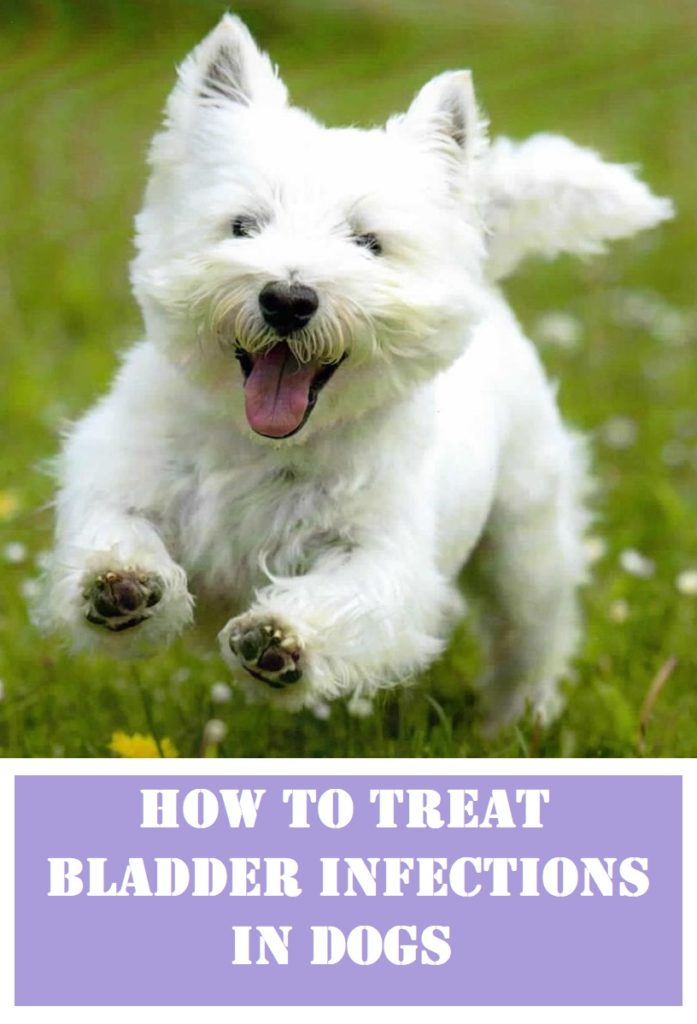Home Remedies for Bladder Infections in Dogs: Have you ever suffered from a UTI (urinary tract infection)? Then you already know the pain and discomfort you have to go through. But did you know that dogs can suffer from bladder infections too- only that they are unable to express the pain and discomfort they are feeling. Just like humans, dogs experience a burning sensation and pain in their abdomen whenever they have a bladder infection. Here are the symptoms.The good news is that you can help your canine companion get relief with effective home remedies. Here are some home remedies for bladder infections in dogs.

10 Natural and Safe Home Remedies for Bladder Infections in Dogs
Here is a look at some of the best home remedies to get rid of bladder infection in dogs:
1. Apple Cider Vinegar and Yogurt
Apple cider vinegar is one of the most excellent home remedies for bladder infections in dogs and humans. The “mother” with healthy bacteria is contained in raw apple cider vinegar, which makes it kill staph bacteria and E. coli and rebalance the flora in your pet’s body. Yogurt, on the other hand, is a probiotic that helps in eliminating bad bacteria.
- Mix equal quantities of raw, unfiltered apple cider vinegar and plain yogurt based on your dog’s size. Mix 2 tablespoons each for large dogs, 1 tablespoon each for medium and a teaspoon each for small dogs.
- Mix the two ingredients well and feed it to your furry friend.
- Repeat 2 times a day for 2 or 3 days to treat UTI in dogs.
- You can also mix an appropriate amount of apple cider vinegar to the drinking water you give your dog.
Related: 5 Tried and Tested Home Remedies for Parvo in Dogs
2. Colloidal Silver
Being a powerful antibiotic with antifungal and antiviral properties, colloidal silver is an effective natural treatment for a wide range of conditions, hence works well in preventing them. You can use it to both treat and prevent health problems in dogs, including bladder infections. The liquid base of colloidal silver has suspended submicroscopic silver particles which penetrate cells and eliminate pathogens.
- For oral dosing, the general guideline for large dogs is 3 teaspoons 4 times a day. For medium and small dogs, the dose is 2 teaspoons 4 times a day and 1 teaspoon 4 times a day respectively.
- You can also add colloidal silver in your pet’s water or food.
Related: 7 Home Remedies to Prevent or Stop Your Dog from Licking Its Paws
3. Cranberries
Cranberries are known to be an effective remedy for UTI in humans. It works well for dogs too. The fruit contains a compound that lowers the pH level in urine and keeps bacteria from attaching to the wall and tissues of the bladder in the urinary tract. They are great for treating infections.
- Give your dog cranberry capsules 2 times a day – you can hide them in cream cheese or peanut butter. Make sure that you consult your vet to get the correct dosage based on your pet’s size and body weight.
- You can also add pure cranberry juice to your dog’s drinking water or food. Make sure that the cranberry juice does not contain sweeteners and other additives.
Related: 7 Safe & Natural Home Remedies You Can Try to Get Rid of Kennel Cough
4. Corn Silk
Corn silk is the thread-like fibers covering corn kernels on the cob, which apparently turns out to be one of the best home remedies for bladder infection in dogs. It is a natural diuretic that improves urine flow and helps in the expulsion of bacteria. Corn silk also has anti-inflammatory properties that help in soothing the bladder lining to provide relief to your sick doggy.
- Add the silk from 1 corn ear to 1 cup of boiling water.
- Cover and let it steep for about 15 minutes.
- For every 20 pounds of your dog’s weight, give ¼ cup of corn silk-infused water 2 times a day.
- You can also give your pet corn silk tincture or powder as advised by your vet.
Related: 5 Natural & Safe Home Remedies for Blood in Dog Stool
5. D-Mannose
A tasteless sugar, d-mannose is great to get rid of bladder infections in dogs. It binds the bad bacteria instead of allowing it to attach to the bladder lining and urinary tract. D-mannose then ensures that the bacteria is flushed out safely from the body via urine. Although it is a sugar, it does not have an effect on pH levels or blood sugar, making it safe for canines with diabetes.
- You can give your dog d-mannose powder 1 or 2 times a day.
- Give 1 teaspoon 2 times a day to large dogs.
- Give ½ teaspoon 2 times a day to medium-sized dogs.
- Give ¼ teaspoon 2 times a day to small dogs.
Related: 5 Home Remedies for Mange to Comfort Your Furry Buddy
6. Water
As with humans, it is important to keep your dog’s body hydrated when they have a bladder infection. Drinking plenty of water means that they urinate more and flush out the bacteria causing the infection. You may find it tough to make your canine friend drink as much water as you need it to but following a few tips will help you with this problem.
- Change your pet’s drinking water frequently so that there is always fresh water.
- If the weather is hot, add some ice. Some dogs love sucking on ice.
- Make the water more enticing by adding some berries or kibble.
Related: 100% Natural & Safe Home Remedies for Dog Ear Infection
7. Vitamin C
When pets suffer from a bladder infection, Vitamin C can be extremely helpful. The nutrient helps in acidifying urine and preventing a recurrence of the infection. Vitamin C is also known to boost the immune system, which in turn helps in fighting off the infection, thereby making it one of the most effective home remedies for bladder infection in dogs.
- Crush 1 500mg Vitamin C tablet.
- Sprinkle the powdered tablet over your pet’s food.
- Do this once every day for up to 1 week.
Related: How To Get Rid Of Fleas & Ticks Naturally? [Infographic+Text]
8. Rest
Your pet’s energy level can go down when it suffers from a urinary tract infection. This is why it is crucial to make sure that your dog gets plenty of rest. When it gets proper rest, the body will heal faster.
- Avoid taking your canine companion for long walks for at least 7 days.
- You can encourage your dog to walk around the house for short durations, so that it gets a bit of exercise.
Related: How to Treat Cystitis in Cats with 10 Easy Home Remedies?
9. Change in Diet
Do you feed your dog dry commercial foods? This could be the reason for the production of alkaline urine, which increases the risk of urinary tract infections in dogs. Therefore, to prevent and treat bladder issues in your pet, you may need to make changes to the food that you feed it.
- Give your furry pal a homemade balanced diet that has all the nutrients necessary to boost immunity and fight infections.
- You can also opt for a raw diet or high-quality canned foods.
Related: 6 Natural & Safe Home Remedies for Fleas on Cats That Will Work
10. Probiotics
Probiotics is a superb natural remedy for treating bladder infection in dogs. They help increase ‘good bacteria’ in the gastrointestinal tract. Probiotics also produce short-chain fatty acids that inhibit the growth of bad bacteria, which in turn helps in combating the microbes that cause infections in the bladder or urinary tract.
- Give your small dog 1 to 2 teaspoons of probiotic-rich plain yogurt once a day.
- For a medium-sized dog, give 1 to 2 tablespoons once a day.
- For a large dog, give 2 to 4 tablespoons once a day.
Related: 9 Home Remedies To Get Rid Of Skunk Smell From Home, Pets & Clothes
You do not have to take your dog to the vet if it has a bladder infection. Home remedies can effectively treat the problem if it is a mild case and prevent it from recurring as well. However, if you do not see any improvement or if the condition gets worse, take your canine companion to your vet immediately to treat the infection as quickly as possible. If you know any other home remedies for bladder infection in dogs, share them with us!
